| Gemstone Chart |
 Natural Benitoite Natural Benitoite
Benitoite is considered to be a semi-precious gemstone. Very limited in nature and available from only one spot on earth (San Benito County, California), Benitoite is among the 10 rarest gemstones on earth
Color: Blue, white, colorless
Categories: semi-precious stone
Chemical Composition: BaTiSi3O6
Crystal Group: Hexagonal
Refractive Index: 1.757 ¨C 1.804
Hardness: 6.5
Density: 3.65 ¨C 3.68
Occurrence: San Benito County, California
|  Natural Chalcedony Natural Chalcedony
Chalcedony is a catch all term that includes many well known varieties of cryptocrystalline quartz gemstones. They are found in all 50 States, in many colors and color combinations, and in sedimentary, igneous, and metamorphic rocks.
Color: grayish, purple, white, green, blue, lavender, yellow, brown
Categories: semi-precious stone
Chemical Composition: SiO2
Crystal Group: Hexagonal
Refractive Index: 1.530 - 1.539
Hardness: 6.5
Density: 2.57 ¨C 2.64
Occurrence: Brazil, U.S.A. Germany, India, Uruguay, Austarlia, Egypt, Italy, Scotland, South Africa, Namibia, Madagascar, Mexico, Tanzania, and many other localities throughout the world.
| 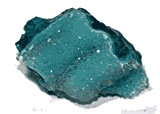 Natural Chrysocolla Quartz Natural Chrysocolla Quartz
Chrysocolla quartz is chalcedony mixed with varying amounts of chrysocolla. The chrysocolla provides the robin's egg blue coloration, and the quartz provides sufficient hardness for use in jewelry.
Color: green, blue, white
Categories: semi-precious stone
Chemical Composition: SiO2
Crystal Group: Hexagonal
Refractive Index: 1.544 - 1.553
Hardness: 7
Density: 2.66
Occurrence: Arizona, Mexico
| 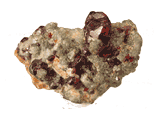 Natural Clinohumite Natural Clinohumite
Clinohumite is a rare mineral and an especially rare gemstone. It is a member of the humite group of minerals, which includes humite, clinohumite, chondrodite, and norbergite.Only two sources of gem-quality material are known: the Pamir Mountains of Tajikistan, and the Taymyr region of northern Siberia.
Color: Brown, yellow, white, orange, or reddish brown
Categories: semi-precious stone
Chemical Composition: Magnesium Silicate Fluoride OH
Crystal Group: Monoclinic
Refractive Index: 1.625 ¨C 1.668
Hardness: 6 - 6.5
Density: 3.17 - 3.35
Occurrence: Extremely rare - gem quality found only in the Pamir Mountains, Tadzhikistan. Other mineralogical occurrences include, Mt. Vesuvius, Italy; Pargas, Finland; Llanos de Juanar, Malaga, Spain; Tilly Foster Mine, New York; Fort Defiance, Apache County, Arizona; Crestmore Quarry, Riverside County and Lower Lake, Fresno County, California; Luna, New Mexico and Franklin, New Jersey, USA.
| 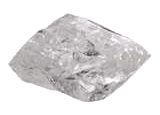 Natural Danburite Natural Danburite
Danburite is a very spiritual stone that carries a pure vibration. With a hardness of 7, danburite is quite hard and suitable for any kind of jewelry. Danburite handles easily and ordinarily offers no problems for lapidaries. It makes an especially brilliant gem because of its extreme clarity.
Color: White, yellowish, very light pink, buff colored, very light brown
Categories: semi-precious stone
Chemical Composition: calcium borosilicate
Crystal Group: Orthorhombic
Refractive Index: 1.630(+.003,-.003) - 1.636 (+.003, -.003)
Hardness: 7
Density: 3
Occurrence: Danbury, Connecticut and Russell, New York, USA; Charcas, San Luis Potosi, Mexico; Kyushu Island, Japan; Mogok, Burma and Uri, Switzerland; Madagascar.
| 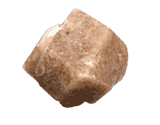 Natural Grossularite Natural Grossularite
A member of the garnet group, grossularite is found in a variety of colors including, yellow, brown, white, colorless, green, violet-red, and orangey red.
Color: Brown, yellow, green
Categories: semi-precious stone
Chemical Composition: Ca3Al2(SiO4)3
Crystal Group: Cubic
Refractive Index: 1.72-1.748
Hardness: 7.25
Density: 3.65
Occurrence: Canada, East Africa, Pakistan, New Zealand, Ceylon, South Africa, U.S.A.
| 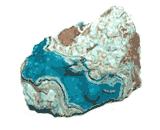 Natural Hemimorphite Natural Hemimorphite
Hemimorphite is a usually white or colorless mineral, essentially Zn4Si2O7(OH)2¡¤H2O, an important ore of zinc. Also called calamine.
Color: Light blue, dark blue, green ,white.
Categories: semi-precious stone
Chemical Composition: (Zn4Si2O7(OH)2.H2O)
Crystal Group: Orthorhombic
Refractive Index: 1.612-1.633
Hardness: 5
Density: 3.44
Occurrence: Franklin and Sterling Hill New Jersey, New Mexico, Montana, Arizona, U.S.A; Congo; Nerchinak in Transbaikalia, Siberia; Zambia; Santa Eulalia and Mapimi, Mexico; England; Wenshan, Yunnan Province, China.
| 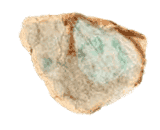 Natural Jadeite Natural Jadeite
A rare, usually green mineral of the pyroxene group. Jadeite can also occur in white, auburn, buff, or violet varieties. The most highly valued form of jade consists of jadeite.Jade has a history in China of at least four thousands years.Experts believe that, although more expensive, diamonds and gold cannot be compared with jade - jade is animated with a soul.
Color: Pure white thru pink, brown, red, orange, yellow, mauve, violet, blue, and black, to an extensive range of green and mottled green and white.
Categories: semi-precious stone
Chemical Composition: NaAl(SiO3)2
Crystal Group: Monoclinic
Refractive Index: 1.654 - 1.667
Hardness: 7
Density: 3.32
Occurrence: Northern Myanmar. Non commercial discoveries of Jadeite have also been reported in China; Russia (in the Polar Urals); Niigata, Japan; San Benito County, California, USA, and Guatemala.
|
|
|




